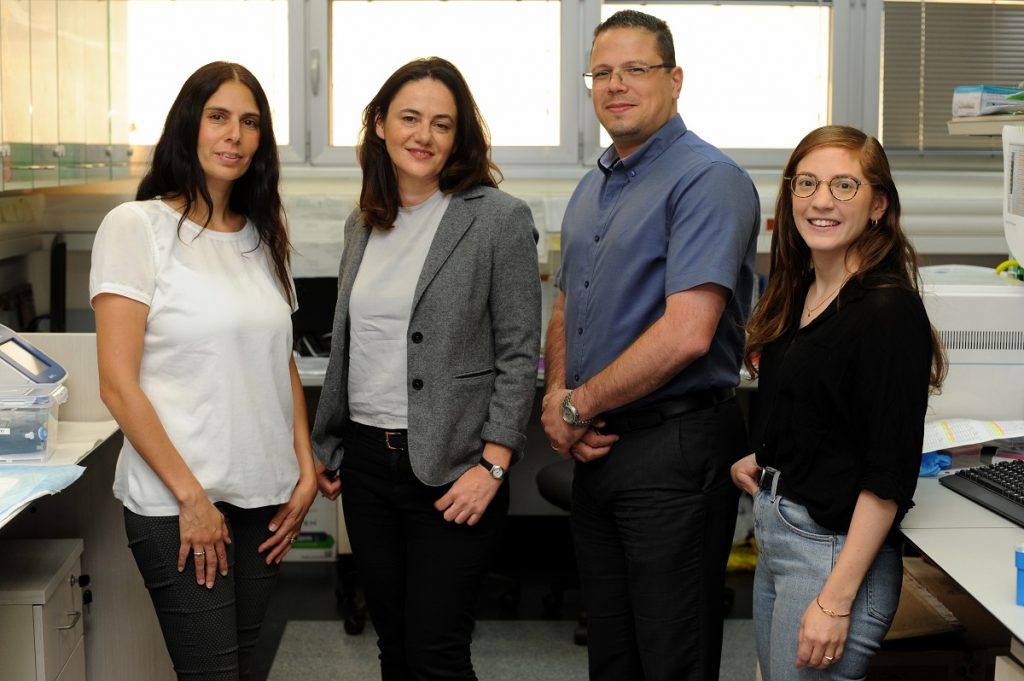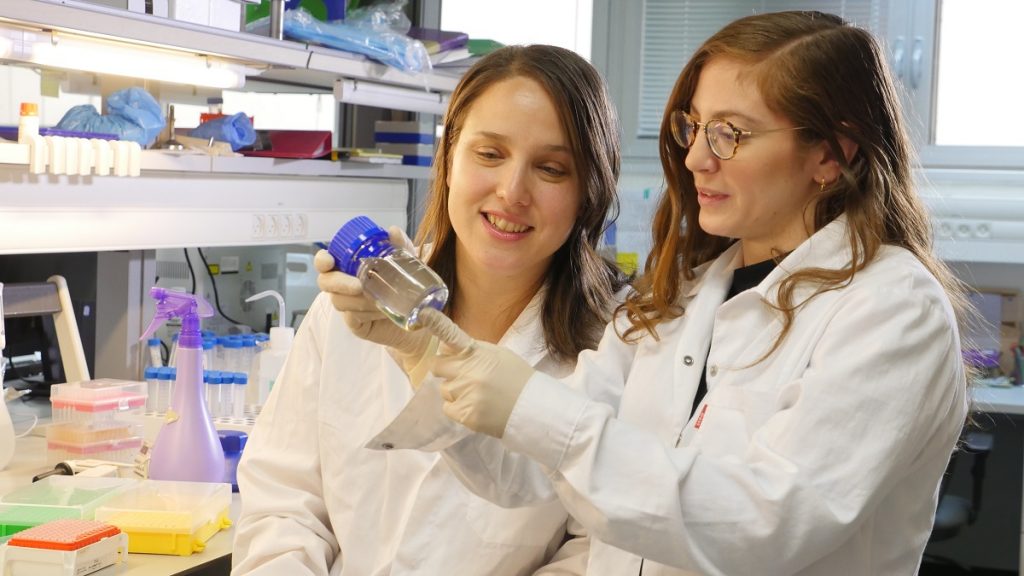The potential that future cancer treatments could include noninvasive stimulation of the brain is genuine, according to researchers from the Technion – Israel Institute of Technology in Haifa who say they have successfully shrunk cancerous tumors in mice by manipulating the brain’s reward system.
In a study recently published in the journal Nature Communications, the Israeli scientists showed how emotions in the brain can influence the way in which the immune system responds to cancer; how positive emotions and optimistic feelings can have an impact on the growth of cancerous tumors.
“I am not sure if [brain stimulation methods will certainly] help treat tumors in the future, but [our study] suggests that such potential exists,” Prof. Asya Rolls of the Technion Rappaport Faculty of Medicine tells NoCamels.
SEE ALSO: Israeli Researchers Say They Can Reprogram Cancer Cells Back To Their Pre-Cancer State
Rolls, together with doctoral students Tamar Ben-Shaanan and Maya Schiller, as well as Dr. Fahed Hakim, Medical Director of the Scottish EMMS Hospital in Nazareth, set out to better understand how the brain controls the immune system when someone is battling cancer.
Their study was based on the commonly known Placebo Effect, which shows that a patient with the expectation that he or she will benefit from a treatment – whether fake or placebo – is more likely to experience a benefit.
The Placebo Effect was “the inspiration for the whole research,” Rolls tells NoCamels. “Although placebo is not a very significant phenomenon in cancer; in cancer, it has been shown that psychological interventions can affect cancer progression.”
The relationship between a person’s emotional state and cancer has been demonstrated in the past, “but mainly in relation to negative feelings such as stress and depression and without a physiological map of the action mechanism,” Rolls said in a Technion statement this month.
“Several researchers, for example, Prof. David Spiegel of the Stanford University School of Medicine showed that an improvement in the patient’s emotional state may affect the course of the disease, but it was not clear how this happened. We are now presenting a physiological model that can explain at least part of this effect,” said Rolls, co-senior author of the research.
In the latest study, Rolls and her researchers implanted cancer cells in mice and stimulated the reward system – the system in the brain responsible for positive anticipation – every day for two weeks.
“When we expect something positive to happen, the dopamine neurons in this area are activated,” explains Rolls.
Amazingly, the researchers found a dramatic contraction of the cancerous tumor in response to the activation of the brain reward system (40 to 50 percent smaller) than those in control mice without any artificial brain activation.
In the study, the researchers showed how brain stimulation affects immune cells that are generated in the bone marrow (called myeloid-derived suppressor cells). These myeloid-derived suppressor cells are known to stimulate tumor progression and halt other immune cells from keeping tumors under control.
The researchers showed that when activating the brain’s reward system, the released dopamine neurons can disable these tumor-causing cells and even contract the cancerous tumor.
Sign up for our free weekly newsletter
SubscribeThe researchers’ success in harnessing the immune system and preventing the cancerous tumor from taking over is a breakthrough and news of their study’s results hit headlines the world over.
But Rolls and her colleagues are eager to quell over-excitement. The results are promising, she says, but it is too early to say what it means for people.
“We are now looking at the effect of reward system activation in humans under healthy conditions when there are no tumors,” Rolls tells NoCamels, “just to see if there is any relevance between our findings and human subjects.”
Rolls has been studying the brain’s effect on the immune system for several years. In a study she published in 2016 in Nature Medicine, she showed how the immune system can be stimulated by manipulating the brain’s reward system – which operates in positive emotional states and in anticipation of the positive.
In both the 2016 and the latest study, the researchers injected experimental mice with a special compound known as a DREADD (designer receptors exclusively activated by designer drugs) that allows researchers to manipulate the brain and activate the reward system.
In the earlier study, the team showed how the immune system created a strong immune memory against a bacteria to which it had been exposed in order to work more efficiently the next time it was exposed to the same bacteria.

Group photo (L-R): Dr. Hilla Azulay-Debby, Prof. Rolls, Prof. Hakim and Maya Schiller. Photo by Rami Shlush, Technion Spokesperson’s office
Similarly, in this latest study, the researchers successfully shrunk cancerous tumors in mice by manipulating the brain’s reward system, which caused the nervous system to stimulate the immune system.
“Understanding the brain’s influence on the immune system and its ability to fight cancer will enable us to use this mechanism in medical treatments. Different people react differently, and we’ll be able to take advantage of this tremendous potential for healing only if we gain a thorough understanding of the mechanisms,” said Hakim, Medical Director of the Scottish EMMS Hospital in Nazareth.
And while the potential that the physiological role the patients’ mental state may play in the development of malignant diseases is exciting, the authors reiterated that the study is preclinical. They also highlighted that they tested only two cancer models (melanoma and lung cancer) and only two developmental aspects – tumor volume and weight.
SEE ALSO: Israeli Scientists Develop New Method To Detect Breast Cancer With Up To 95% Accuracy
“I want to emphasize what our findings do not say,” Rolls said. “They do not say that it is applicable for all types of cancer and most importantly that it is not applicable to humans at this point. It is a robust artificial type of manipulation, designed to determine the system’s potential. In real-life situations, it most probably works differently, especially because other systems are also involved. For example, stress may counteract these reward system effects.
“I think it’s crucial for people to know that it’s not that one can just think positively and get better. People are very different in their reactions, and until we fully understand how this works, it merely offers a potential.”
Viva Sarah Press is a journalist and speaker. She writes and talks about the creativity and innovation taking place in Israel and beyond. www.vivaspress.com
Related posts

Editors’ & Readers’ Choice: 10 Favorite NoCamels Articles

Forward Facing: What Does The Future Hold For Israeli High-Tech?

Impact Innovation: Israeli Startups That Could Shape Our Future





Facebook comments